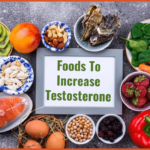
The Importance of Healthy Eating for Seniors
Healthy eating is of utmost importance for seniors as it plays a crucial role in maintaining good health, preventing chronic diseases, and promoting overall well-being. Here are several reasons why healthy eating is important for seniors: Nutrient intake: As people age, their nutrient needs may change. Older adults require adequate amounts of essential nutrients like…














